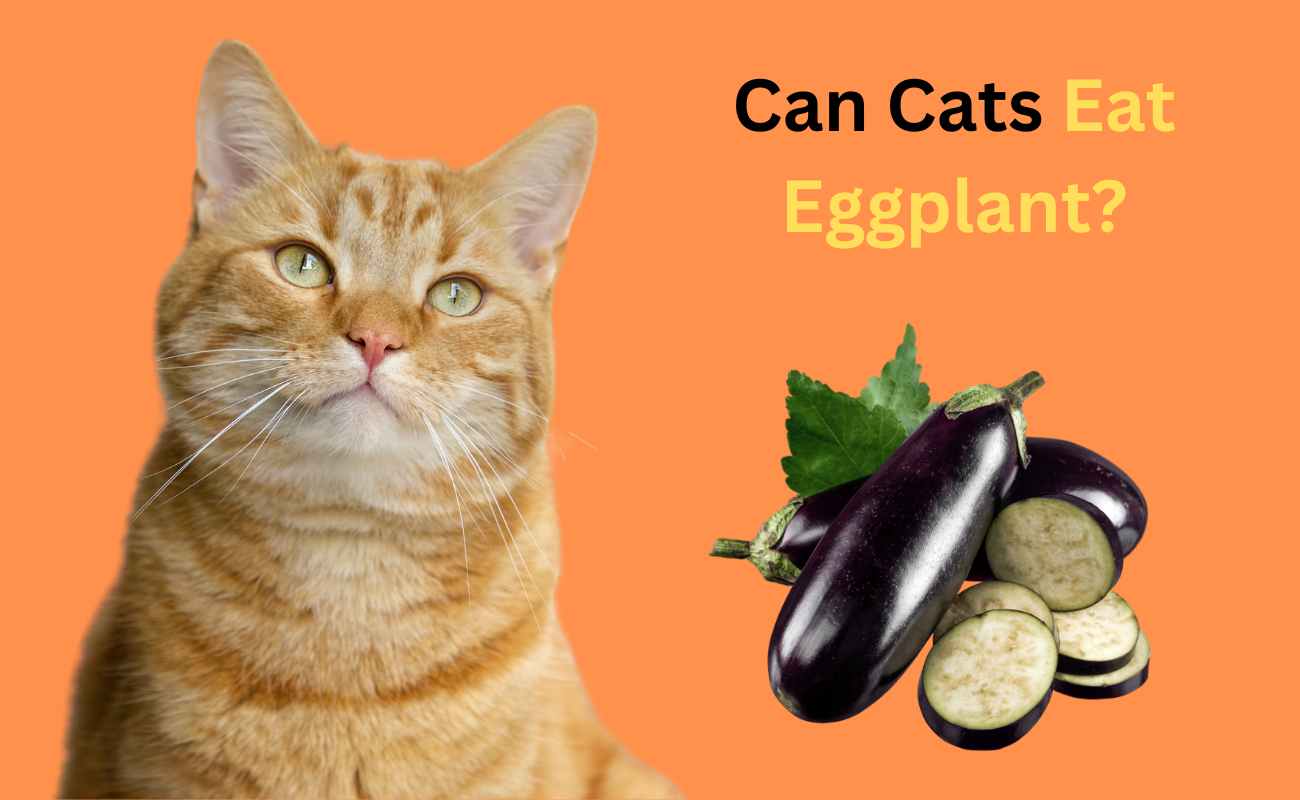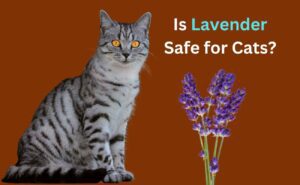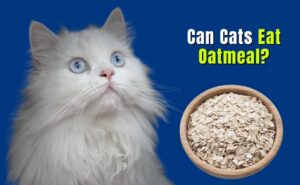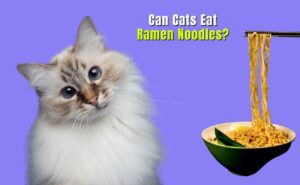Cats are known for their curious and often quirky eating habits. As a pet owner, you want to ensure your feline friend is eating safe and healthy foods. One question that may arise is whether cats can eat eggplant. While eggplant is a common ingredient in many human dishes, it’s crucial to understand whether it’s safe or harmful for your furry companion. This article will explore the ins and outs of eggplant consumption for cats, including its potential risks, nutritional content, and expert recommendations.
What Is Eggplant?
Before diving into whether cats can eat eggplant, let’s first understand what eggplant is. Also known as aubergine, eggplant is a vegetable that belongs to the nightshade family (Solanaceae), which includes tomatoes, potatoes, and bell peppers. It comes in various shapes, sizes, and colors, but the most common type is the large, purple variety.
Eggplants are packed with nutrients like fiber, vitamins, and antioxidants that are beneficial to humans. However, just because a vegetable is healthy for humans doesn’t mean it’s safe for cats.
Signs and Symptoms of Solanine Poisoning in Cats
If your cat has ingested eggplant, you should be on the lookout for symptoms of solanine poisoning. These symptoms typically appear within a few hours of consumption and can include:
- Vomiting and diarrhea: Solanine irritates the digestive system, leading to gastrointestinal distress.
- Lethargy: A cat may become unusually tired or weak.
- Tremors and seizures: In severe cases, solanine can affect the nervous system, leading to muscle tremors or even seizures.
- Drooling: An increase in salivation may indicate distress or nausea.
- Disorientation and confusion: Neurological symptoms can cause a cat to appear disoriented.
If you suspect your cat has eaten eggplant and is displaying any of these symptoms, contact your veterinarian immediately. Solanine poisoning can be life-threatening if not treated promptly.
What About Cooked Eggplant?
Some pet owners may wonder if cooking eggplant reduces its toxicity enough to make it safe for cats. While cooking eggplant does lower the solanine content, it doesn’t eliminate the risk entirely. Cats have small, sensitive digestive systems, and even trace amounts of harmful chemicals can lead to health problems.
In addition, cooked eggplant is often prepared with spices, oils, and other ingredients that are also harmful to cats. Garlic, onions, and salt, common seasonings used in eggplant dishes, are toxic to cats and can cause severe health issues, including anemia and high blood pressure.
Nutritional Needs of Cats: Why Eggplant Isn’t a Good Fit
Cats are obligate carnivores, which means their diet must consist primarily of meat. They rely on animal-based proteins and fats for energy and essential nutrients like taurine, arginine, and arachidonic acid. While vegetables like eggplant contain fiber and antioxidants, they don’t provide the nutrients a cat needs to thrive.
Feeding your cat vegetables like eggplant can also cause digestive upset, as their bodies aren’t designed to break down plant matter effectively. Cats lack the enzymes needed to process high-fiber foods, leading to bloating, gas, and discomfort.
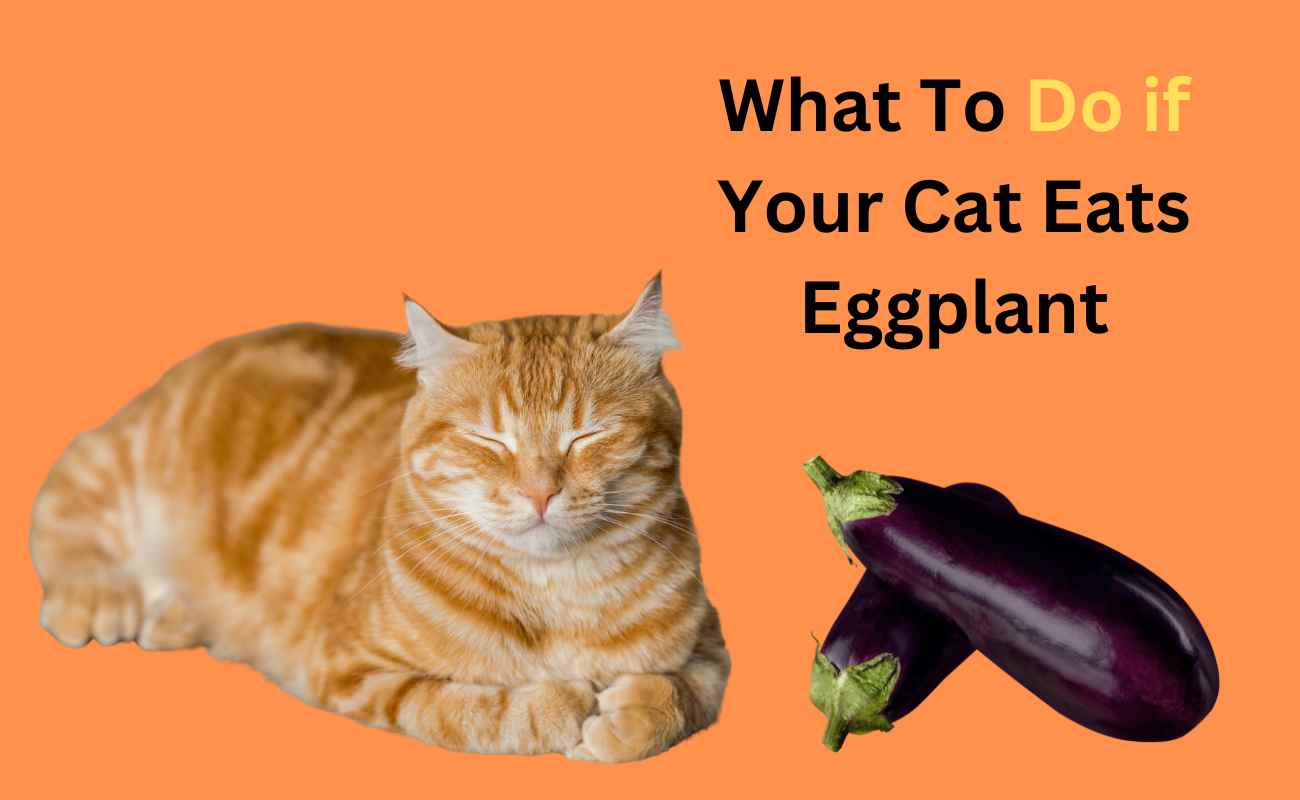
What To Do if Your Cat Eats Eggplant
If your cat accidentally consumes eggplant, take immediate action. Even if they only ingest a small piece, it’s important to monitor them closely for any signs of distress.
- Contact your veterinarian as soon as possible. They may recommend bringing your cat in for an examination or administering activated charcoal to absorb any toxins.
- Monitor your cat for symptoms like vomiting, diarrhea, or lethargy. Keep a close eye on their behavior for the next 24–48 hours.
- Remove any remaining eggplant to prevent further consumption.
While eggplant poisoning can be serious, prompt treatment can make all the difference in your cat’s recovery.
Conclusion: Should You Let Your Cat Eat Eggplant?
In conclusion, eggplant is not a safe or suitable food for cats. The presence of solanine makes it toxic, and its nutritional profile doesn’t align with the dietary needs of obligate carnivores like cats. Whether raw, cooked, or prepared in a dish, it’s best to keep eggplant off your cat’s plate.
Instead, focus on providing your cat with a balanced diet that includes high-quality cat food, plenty of protein, and the occasional safe treat. By being mindful of what your cat consumes, you’ll ensure they live a long, healthy, and happy life.
If you ever have any doubts about what foods are safe for your pet, don’t hesitate to consult with your veterinarian. Their expertise can guide you in making the best choices for your furry friend.

